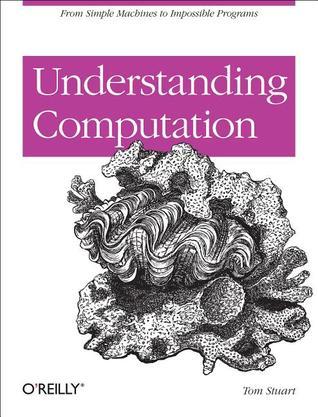What do you think?
Rate this book


329 pages, Paperback
First published January 1, 2013
...programmers who are curious about programming languages and the theory of computation, especially those who don’t have a formal background in mathematics or computer science.
In the end, syntax is only concerned with the surface appearance of programs, not with their meanings.
The NFA class automatically takes account of free moves — we can see that when our NFA is started in state 3, it’s already possible for it to be in state 2 or 3 before it has read any input — so we won’t need to do anything special in NFASimulation to support them.
The purpose of an expression is to be evaluated to produce another expression; a statement, on the other hand, is evaluated to make some change to the state of the abstract machine.